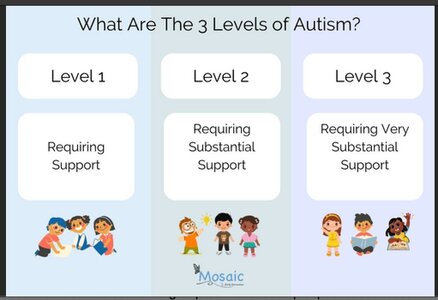August Lager
New Member
Hi!
We are Henrietta J:son Eskelin and August Lager, master students of psychology at the University of Gothenburg, Sweden. This study is being conducted within the framework of a Swedish master's thesis under academic supervision.

To take part in the study, please follow this link:
Online Survey Software | Qualtrics Survey Solutions
“Samantha Craft's Unofficial List of Female Autistic Traits” is a compilation of observations illustrating how autism may present differently in females. This research aims to investigate how gender identity and the degree of autistic traits influence an individual's resonance with this list. To achieve this, we are seeking adult participants across all gender identities, ages, and neurotypes (autistic and non-autistic).
This survey is intended for individuals aged 18 years or older. Initially, you will be asked to provide your age and gender identity. Subsequently, you will be presented with Samantha Craft's list and asked to indicate which items resonate with your personal experience of being you. Finally, you will complete a measurement of autistic traits (or lack thereof). It is important to note that this scale is not able to decide whether you meet the diagnostic criteria required for any formal diagnosis. The estimated time commitment for this survey is approximately 40 minutes. You may take breaks and return to the survey later, provided you utilize the same web browser with cookies enabled. Data from incomplete surveys will not be included in the final data analysis.
Participation in this research is entirely voluntary. You may withdraw at any time without providing justification and without consequence. Should you choose to withdraw and later wish to participate, you will need to restart the survey from the beginning. To avoid this, pausing the survey is recommended.
Your privacy will be protected by presenting the results in a manner that prevents direct identification. All responses will be kept anonymous. Upon completion of the survey, your individual results will be made accessible to you. On the concluding page of the survey, you will have the option to print or download a document containing your score summary, our contact details, and information on how to access the final thesis publication. Data will be securely stored on the Qualtrics platform and protected from unauthorized access, with protocols in place to maintain participant confidentiality. No IP addresses will be collected. During data analysis, your anonymized results will be stored on a hard drive. Once the analysis is complete and the study has concluded, all data will be erased.
Thank you!
We are Henrietta J:son Eskelin and August Lager, master students of psychology at the University of Gothenburg, Sweden. This study is being conducted within the framework of a Swedish master's thesis under academic supervision.
To take part in the study, please follow this link:
Online Survey Software | Qualtrics Survey Solutions
“Samantha Craft's Unofficial List of Female Autistic Traits” is a compilation of observations illustrating how autism may present differently in females. This research aims to investigate how gender identity and the degree of autistic traits influence an individual's resonance with this list. To achieve this, we are seeking adult participants across all gender identities, ages, and neurotypes (autistic and non-autistic).
This survey is intended for individuals aged 18 years or older. Initially, you will be asked to provide your age and gender identity. Subsequently, you will be presented with Samantha Craft's list and asked to indicate which items resonate with your personal experience of being you. Finally, you will complete a measurement of autistic traits (or lack thereof). It is important to note that this scale is not able to decide whether you meet the diagnostic criteria required for any formal diagnosis. The estimated time commitment for this survey is approximately 40 minutes. You may take breaks and return to the survey later, provided you utilize the same web browser with cookies enabled. Data from incomplete surveys will not be included in the final data analysis.
Participation in this research is entirely voluntary. You may withdraw at any time without providing justification and without consequence. Should you choose to withdraw and later wish to participate, you will need to restart the survey from the beginning. To avoid this, pausing the survey is recommended.
Your privacy will be protected by presenting the results in a manner that prevents direct identification. All responses will be kept anonymous. Upon completion of the survey, your individual results will be made accessible to you. On the concluding page of the survey, you will have the option to print or download a document containing your score summary, our contact details, and information on how to access the final thesis publication. Data will be securely stored on the Qualtrics platform and protected from unauthorized access, with protocols in place to maintain participant confidentiality. No IP addresses will be collected. During data analysis, your anonymized results will be stored on a hard drive. Once the analysis is complete and the study has concluded, all data will be erased.
Thank you!
